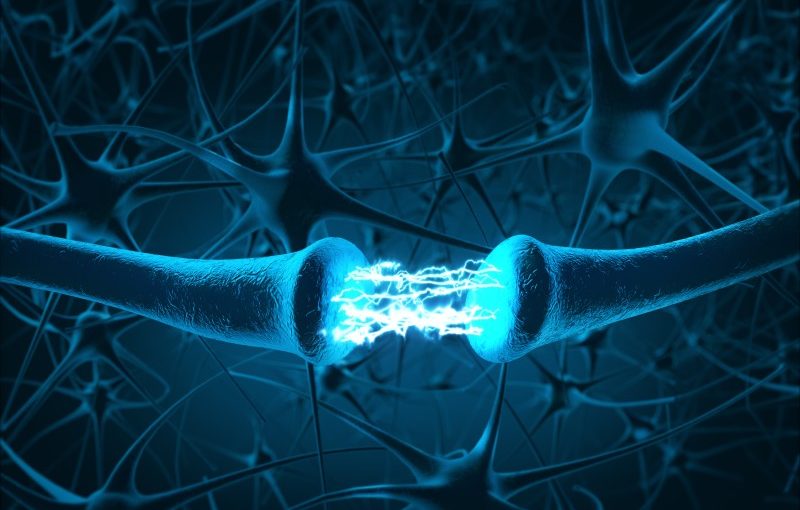In a virtual conversation, body language and facial expressions are limited. Especially since the cameras record us two-dimensionally, which does not correspond to our learned patterns. Evolutionarily, we have learned to read non-verbal signals on a three-dimensional person in order to build psychological safety and gain trust.
That’s why it’s important to focus on verbal (our words) and para-verbal communication (social sounds, e.g. „hmm“) in a virtual conversation.
Words evoke emotions and through these physical reactions.
Words that trigger emotions also lead to a physical reaction, just as facial expressions or sounds can. Words that are read or heard and associated with smiling, for example, lead to smiling in the perceiver.
Mirror neurons / resonance leads to the fact that emotions of observed persons are also physically comprehended. In cognitive tasks, physical change does not occur.
Some physical sensations coupled with individual emotional experiences are stored as somatic markers.
Somatic markers are emotional memory stores of experiences combined with body signals. These body signals emit evaluation signals, such as „positive, aim for“ and „negative, avoid“. Somatic markers express themselves with physical sensations and/or feelings. Immediately, when a signal reaches the person, these markers emerge, which are necessary to decipher
The somatic markers are activated through two pathways:
1. body loop: when the emotion is activated, the appropriate bodily state arises directly.
2. as-if-body loop: as-if-body loop, when memories, thoughts or ideas are evoked. These lead to the appropriate physical emotion arising (conversely, it is a physical anchor).
3. Words can trigger both loops. Accordingly, words influence behavior patterns/actions as well as emotions.
Since neuroception an co-regulation, which are biological process to reduce stress signals through the influence on autonomous nervous system (Polyvagal Theory from Stephen W. Porges), are only possible to a limited extent in a virtual conversation, the choice of words in a virtual environment is crucial, since words can trigger emotions. If words are increasingly chosen that evoke positive emotions, co-regulation can take place via this route.
„The Berlin Affective Word List Reloaded“ (BAWL-R) provides an overview of words that show emotional valence, imaginability, and emotional arousal. To learn more about the power of words, you find the BAWL-R under this link, https://osf.io/hx6r8/




